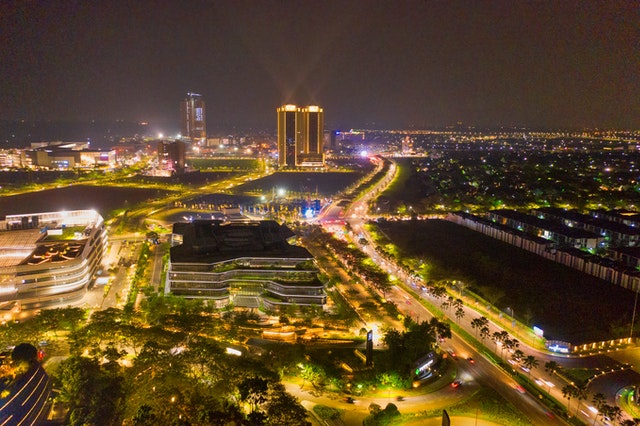Theme:
- On 25th June 2015, the government of India launched ‘Smart Cities Mission‘.
Background:
- The concept of ‘Smart cities‘ was born in 2008 when IBM introduced this concept as a part of its ‘Smarter Planet Initiative‘.
- There are some successful smart cities in other countries such as Amsterdam, Barcelona & Stockholm etc.
- It is expected that in India, by 2050, 70% of the population lives in cities. But the present cities are not capable to accommodate the growing migrants. 500 new cities will be needed by then according to futurologists. To address this challenge, the Govt of India launched ‘Smart Cities Mission‘ (SCM) on 25th June 2015.
- 100 cities were selected to be transformed as smart cities by 2020. But the deadline was extended to 2023.
- The approx budget for this mission is 1 lakh crore rupees. Center will provide 48,000 crores in the next five years and respective state govt will provide another 48,000 crores. On top of this, investments will be provided through the Public-Private Partnership (PPP) model.
What is a Smart City:
- The definition of ‘smart city’ differs from country to country and even from the city to city. It highly depends on local needs. In the west, a smart city is more IT-focused. But here, in India, the smart city is the one that promises essential needs like clean water, electricity, sustainable environment, affordable housing etc with the integration of IT services.
- The smart cities in India are being designed to drive economic growth and also to give a decent quality of life to the citizens.
Features of the Smart City:
- Rooftop solar panels
- Public Electric Vehicles, Smart parking system
- Happiness areas for social needs of citizens
- Smart classrooms in all schools
- Smart poles with LEDs with WiFi, air-quality & noise pollution sensors etc.
- Sustainable development
- Clean environment
Benefits of Smart Cities Mission:
- This can solve the problem of slums and the growing need for accommodation in cities.
- Smart cities are going to be more citizen-centric. This will be a good step towards a bottom-up approach in governance.
- Smart initiates will reduce the cost of infrastructure, thereby making the housing cheaper and affordable.
- Many employment opportunities will be created not just to IT people but to many. So this can reduce unemployment to some extent.
- Benefits will spread to all sections of people through a trickle-down effect.
- The improved transport system will have a positive effect on the economy.
- Though the capital amount is huge, the benefits can recover the investment in future.
Challenges:
- Building smart cities may result in evacuation & displacement of many people.
- Smart cities may widen the rich-poor gap.
Criticism :
- As of now, the progress of the mission is slow. The earlier deadline was the year 2020, but it is extended to the year 2023.
- Smart cities initiative will develop the already developed cities but not the poor villages. Instead of looking at solutions to accommodate the migrants from rural areas, it’s better to look at the solutions to increase the employment opportunities at villages.
- Huge investment may make life in smart cities more costly and unaffordable to many. Gated communities may develop there, which makes it a rich people zone. This can encourage slums.
- As everything is integrated with technology, there will be a big data collection, putting privacy at risk.
- Too much dependence on digitalisation can make us vulnerable to cyber-attacks.
- PPP model has failed in many cases. Relying on it is risky.
- This mission requires a huge investment.
Conclusion:
‘Smart cities mission’ is indeed a smart move. But the real challenge ahead is ensuring that this mission won’t widen the rich-poor gap.
Photo credits: source
Your Turn…
What are your thoughts on this topic? Express your opinion through the comment section below. And subscribe to our blog to read answers to the trending GD topics.
Copyright @ Group Discussion Ideas.

